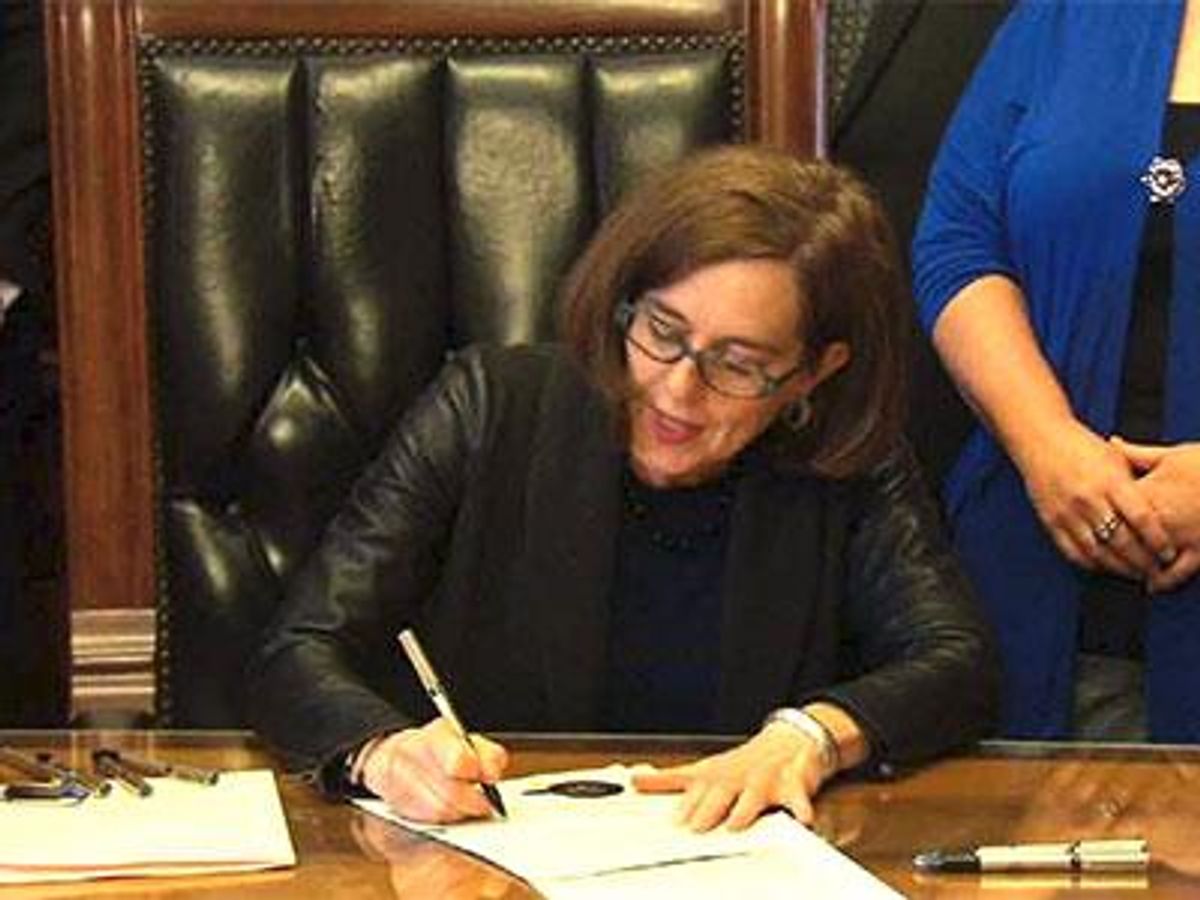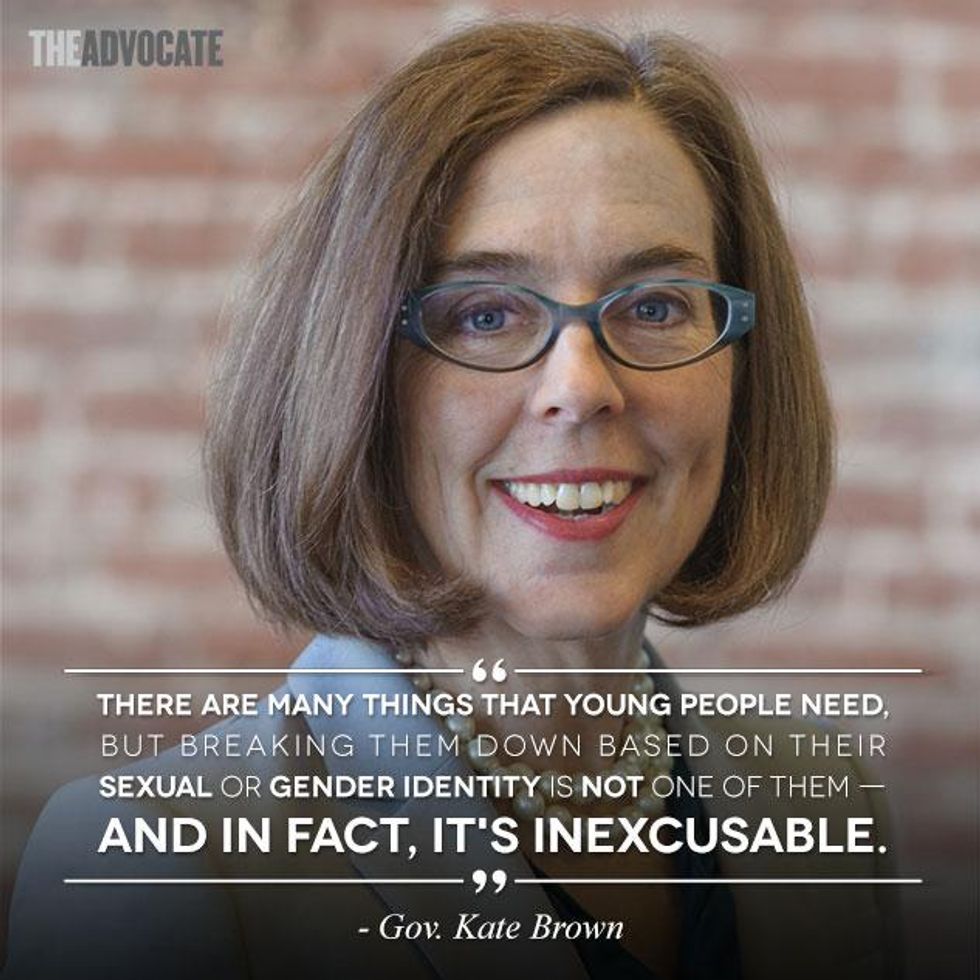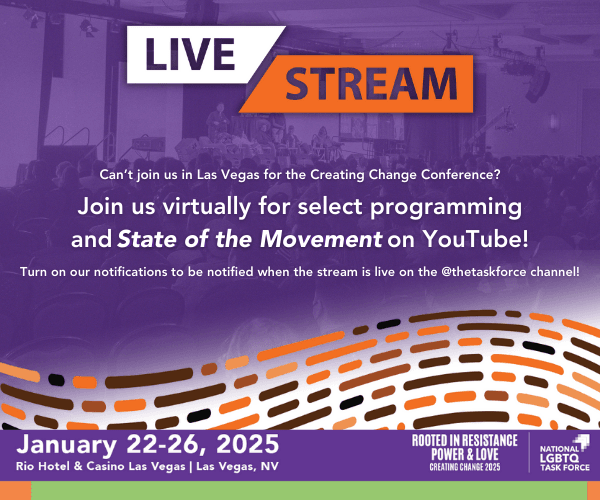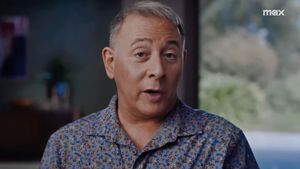Oregon Gov. Kate Brown was clearly affected by the stories of those who spoke out against so-called conversion therapy, as she became emotional during a signing ceremony for the bill that made Oregon the third U.S. state to ban the unscientific practice that seeks to change a person's sexual orientation or gender identity.
Brown officially signed House Bill 2307, the Youth Mental Health Protection Act, on Monday, after more than a year of advocacy from citizens and groups, including Basic Rights Oregon and the National Center for Lesbian Rights.

Oregon now joins California, New Jersey, and the District of Columbia in prohibiting licensed therapists from using the scientifically discredited therapy on minors, which attempts to change a person's sexual orientation or gender identity. The practice, sometimes called "ex-gay" or "reparative" therapy, has been denounced as ineffective and harmful by every major mental health organization in the nation, and by President Obama and other top federal officials.
During a ceremonial signing event Thursday at the state capitol in Salem, the governor thanked "All of the supporters, the survivors, the clergy, the parents, and mental health professionals for their advocacy to pass this legislation to ban conversion therapy."
But it was recognizing the stories of young people subjected to the harmful practice that seemed to resonate most with the governor -- who, as an out bisexual woman, happens to be the first openly LGBT governor of any state in the U.S.
"There are many things that young people need, but breaking them down based on their sexual or gender identity is not one of them -- and in fact, it's inexcusable," said Brown.
"Our young people deserve acceptance, support, and love. To the young people who question their identities, suffer from bullying, or struggle with what it means to come out, today is your day," said the governor, her voice breaking. "Your voices have been heard."
Watch video from the signing ceremony below, where the governor is flanked by state leaders and local advocates, including former "ex-gay" spokesman John Paulk, who denounced reparative therapy and came out as gay in 2013, and has also apologized for the harm he caused promoting so-called conversion therapy.

















































































